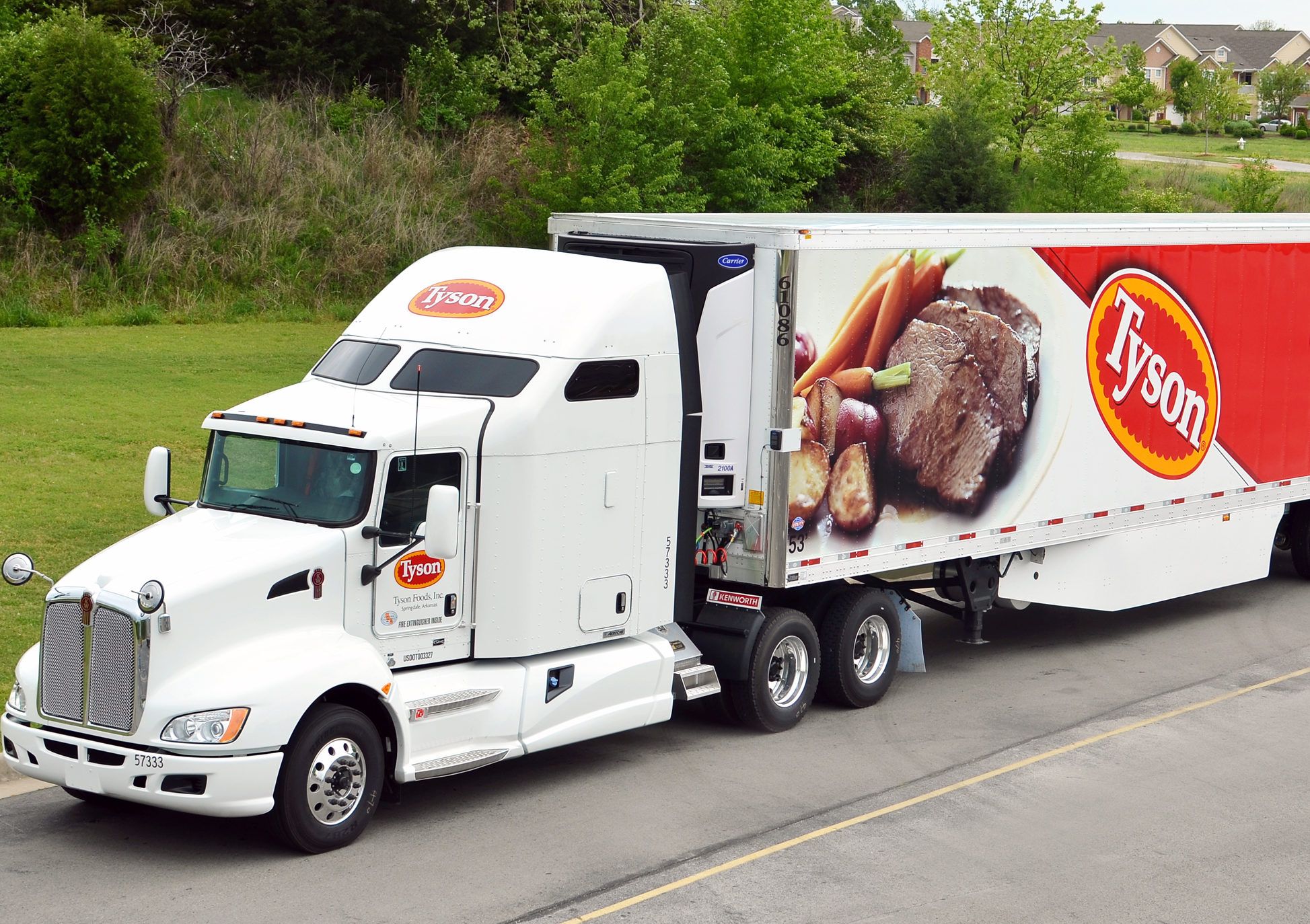This week, Tyson Foods joined the growing list of food companies with venture capital funds investing in food and agritech startups.
The company, which earlier this year shocked the sector by making an investment in plant-based meat alternative company BeyondMeat, said in a statement it would make $150 million available to invest in companies “developing breakthrough technologies, business models, and products to sustainably feed a growing world population.”
Tyson New Ventures will invest in three main areas: alternative proteins; companies tackling food insecurity and food waste; and digital tools to grow and track food, ensure food safety and promote consumer empowerment in the food chain.
Fund focus
This diverse focus area could stretch a wide variety of technologies from innovative packaging, food waste repurposing technologies, shelf-life enhancement technology, new food brands, insect farming, and livestock monitoring tech.
That means Tyson could be investing in everything from new types of packaging that can give a chicken a longer shelf-life, to sensors, software or robotics that can reduce food waste in factories or at restaurants, or innovation that’s more around a great new food brand.
While the fledgling alternative protein market aims to directly compete with animal meat, Tyson said it sees the fund as a complement to continued investment in its core fresh meats, poultry, and prepared foods businesses.
“We look at [meat alternatives] as an ‘and,’ not an ‘or,’ ” compared with Tyson’s conventional meat business, said Monica McGurk, Tyson’s head of strategy in a Wall Street Journal article.
“This fund is about broadening our exposure to innovative, new forms of protein and ways of producing food while remaining focused on our core fresh meats, poultry, and prepared foods businesses, which are also experiencing tremendous consumer demand and growth,” she said in a statement.
Tyson New Ventures will be based in Chicago and led by Mary Kay James as vice president and general manager. James is no stranger to corporate venture capital after serving as managing director of DuPont Ventures and chairperson of the National Venture Capital Association, Corporate Venture Group.
Engaging with companies dedicated to eliminating animal suffering in agriculture is a good PR move for Tyson, which has had some negative headlines in the recent past. In August a video emerged of Tyson workers mistreating chickens at one of its processors. During the same month, some shareholders filed a complaint that the company wasn’t following strict enough ESG (environment, social, and governance) practices. These shareholder resolutions referenced animal welfare and water pollution, among other factors.
Why are there a growing number of food companies with venture capital funds?
More likely the reason behind creating the fund is the same as the other food companies with venture capital funds; to stay relevant and avoid being left behind as innovative food products and services steal market share.
The idea that the growing army of food startups could replace large food companies has been referenced several times recently, most recently by Hans Taparia, an assistant professor at the New York University Stern School of Business and co-founder of an organic food business, in a Guardian article.
‘What big brands should be doing, says Taparia, is taking the long view and launching fresh food under new brand names. “It would take a lot of investment and work,” he says, “but they have to think big, otherwise they’ll face annihilation in 10 years.”’
During the summer, AgFunder heard the executive of a large food company say: “The food and ag sector is a textbook sector ripe for disruption. Eight of the 10 biggest companies could go away. That’s actually a possibility.”
To avoid losing market share or becoming less relevant, food companies have started investing in startups to keep track of new innovations and ideas they aren’t coming up with in-house.
The food comoanies generally makes these investments in three ways: through an internal corporate venture arm; an external fund that’s wholly funded by the food company; or with direct investments made into startups from a company’s balance sheet.
Here is a list of food companies with venture capital funds or other investing initiatives:
Archer Daniels Midland Company is launching a corporate venture fund but until now has invested directly in startups such as Agrible last year.
Campbell’s Soup – Acre Venture Partners operates independently of the corporate but counts it as its only LP. Acre Venture Partners has invested in five companies this year including Spoiler Alert, Back to the Roots, Farmer Business Network, Juicero, and Sample6.
Coca-Cola – VEB is the company’s corporate venturing arm that’s invested in a range of drinks companies such as Zico coconut water and Illy coffee.
Danone – the newly-launched Danone Manifesto Ventures is based in New York and aims to support companies that promote healthier, more sustainable eating practices that emphasize the cultural diversity encompassed by alimentation.
General Mills – 301 Inc is the company’s venturing unit and this year has invested in Kite Hill, Good Culture, Tio Gazpacho, and Rhythm Superfoods.
Hain Celestial – Cultivate Ventures is a platform within Hain Celestial that invests in lifestyle brands, smaller portfolio brands and concepts including the SunSpire confectionery line.
Kellogg’s – Eighteen94 Capital is Kellogg’s corporate venture arm led by Simon Burton, a 10-year executive at Kellogg, and managed by Touchdown Ventures, which specializes in corporate venture capital.
McCain Foods – invests directly and this year has invested in ag imagery analysis company Resson.
Mars – Digitalis Ventures is managed externally to Mars and focuses on technologies tackling human health and wellbeing.
Nestlé – Inventages is run by ex-Nestlé, healthcare, and banking executives as a life-sciences, nutrition and wellness focused venture capital fund.
Tate & Lyle – Tate & Lyle Ventures is managed externally to the sugar company and invests in renewable ingredients, food technologies, biomaterials and industrial processing technologies.
Tyson Foods – Tyson New Ventures is the food company’s corporate venture arm.
711 – 7-Ventures is the company’s corporate venture arm investing in consumer-facing technologies across sectors and not necessarily in food.
Since Tyson Foods is also an agricultural company, here is a list of agribusinesses with venture capital initiatives too:
Bayer CropScience invests into third-party funds directly
Bunge Ventures
Dow Venture Capital
The Andersons created Maumee Ventures
Wilbur-Ellis created Cavallo Ventures
In a recent survey AgFunder conducted with Boston Consulting Group, agribusinesses told us they did not feel prepared for investing in new agritech innovation. But they are very willing to do so and are prioritizing unfamiliar areas such as big data that they see as important to their future success.
The reasons for investing in agritech startups are similar for agribusinesses as for food companies; wanting to keep up with the competition, increase efficiencies, and maintain relevance.
BCG and AgFunder offered six pieces of advice to agribusinesses in their approach to agritech investment going forward:
- Develop customer-centric technology solutions
- Build a technology roadmap
- Have an “always on” scouting capability
- Make a portfolio of bets
- Take a “through cycle” approach
- Build capabilities that facilitate investing
We expect startup investment levels from both food and agriculture companies to continue to rise.
Have we missed any food companies with venture capital funds or other investing initiatives? Please let us know! Email [email protected]
More on the topic:
Why VCs Are Devouring Food Startups
Top venture capital funds for Food and Beverage industry
In A Hedge Against A Meatless Future, Tyson Foods Launches $150 Million VC Fund





